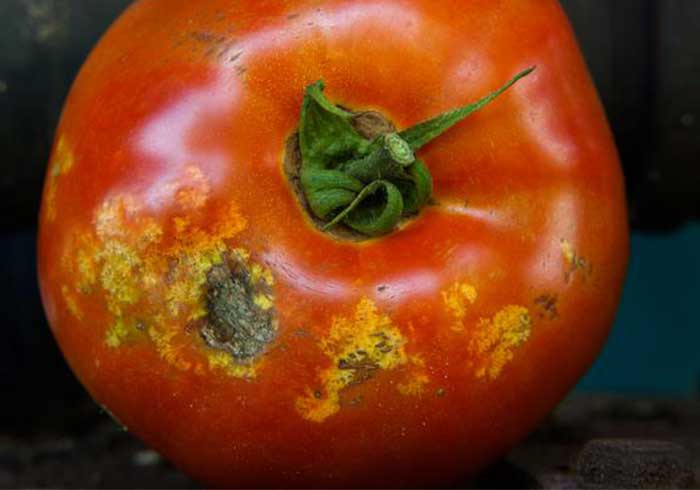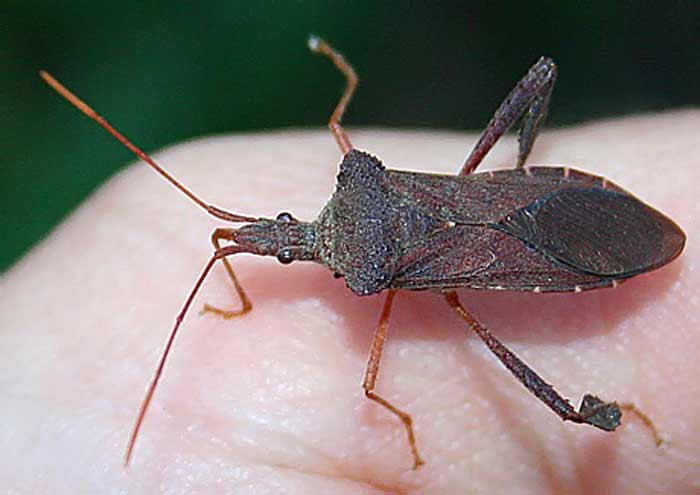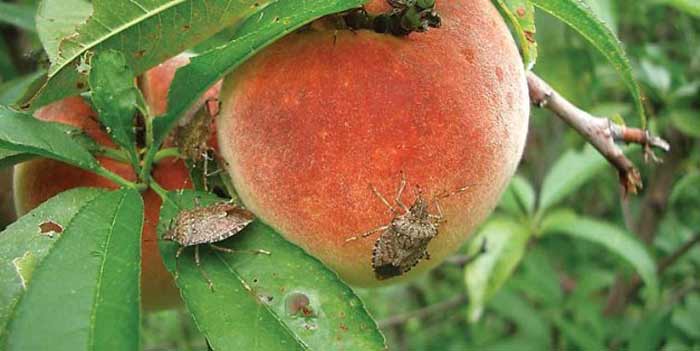Stink bugs are commonly known by their distinctive stench, but most people also wonder if they bite humans and pets. Luckily they do not bite but their toxic excrete can be dangerous. They’re as well destructive to crops. Read on to find out how they can be harmful.
Table of Contents
Do Stink Bugs Bite/ Sting ?
Stink bugs don’t bite or sting human beings and pets. Why? These insects don’t feed on blood and their mouth-parts are not structured to bite.
The mouthparts of stink bugs are rostrums with four needle-like parts that are meant for piercing into the veins of leaves and other parts of plants so as to suck from its sap.
Some of the stink bugs in existence prey on other insects. Therefore, the mouthparts of stink bugs can be said to be either for piercing or sucking as wells as enabling them feed on other insects.
However, stink bugs are predominantly herbivorous, making them feed on vegetables, fruits and ornamental plants such as pecan, hackberry, dogwood, citrus, tomato, apple, sunflower and birch among many others. Being polyphagious, they are not confined to a particular type of plant.
Further Reading: What do Stink Bugs Eat-How long can they Stay without Food?
Another explanation for being non-biting insects is that they do not to bite to defend themselves. Their defense mechanism involves emitting a liquid spray from their abdomen-located stink glands.
The spray has a malodorous smell and it may persist in your house for hours. This happens when they feel threatened making them master quite some bad reputation.
The smell is not known to have a severe side effect to human beings nor pets. To say that a bad smell means inedibility is a myth towards anything and the two are not in that way related. In the Southern part of Africa and in some Asian cultures, the stink bug forms part of their daily meals and it is selling.
Well, not all stink bugs are edible. This specifically refers to the Southern Green Stink Bug. Such countries include Mozambique, Botswana, Zambia, South Africa and Zimbabwe.
Stink Bugs may cause Allergies & Harm to Humans
A 2017 study concluded that the odorous bodily fluids a stink bug excretes as a defensive mechanism can be dangerous. If the toxic fluid gets into the human eye, it can cause unexpected chemical burns or injury. Patients whose eyes come into contact with these bodily fluids should rinse their eyes thoroughly and immediately seek medical attention.
Some people may be allergic to the chemical compounds in the stink especially when they are squashed.
The chemicals in the stink glands include aldehydes, alkanes and esters. The aldehydes include trans-2-decenal and trans-2-Octenal.These may lead to dermatitis, a condition in which there are small inflammations on your skin which are red and itchy.
The allergy could also occur when you are scratched by the stink bug’s exoskeleton which is rough and sharply cornered.
What happens if you swallow a stink bug
This is not a rare occurrence. Children indeed find themselves putting anything they see in their mouth including insects. No wonder they easily get poisoned. Therefore, from the chemistry of its liquid spray, the following could be deduced:
- It will be bitter: the aldehydes, alkanes and esters form a bitter cocktail.
- You may have some gastrointestinal problems: this may be due to an allergic reaction in the gut. You may have some diarrhea or stomach pains.
- You will however not die from swallowing a stink bug: which is a fortunate thing.
The South African National Biodiversity Institute mentions the edible stink bugs, the Southern Green Stink Bug that is widely eaten in countries in Southern Africa. This has been done for generations and is an ongoing culture.
The Venda and Mapulana people have this delicacy in their cuisine. According to Teffo, L.S. (2006), they are important in the provision of protein, micro-nutrients and vitamins.
Before eating these stink bugs, you have to eliminate the bitter tasting chemicals in the bug. The processing involves removal of the head and squeezing of the chemicals from the opening for dead stink bugs.
However, if they are alive, they are soaked in warm water and stirred thereafter to remove the defense chemicals.
Are stink Bugs Poisonous to Dogs & Cats
What will happen if your pets eat a stink bug? Cats and dogs like chasing after insects and munching them.
They are equally irritated by this bug and are likely to swallow them when they see them crawling or flying around in the house or in the field.
Therefore, this may pose a worry over their safety. Good thing, the stink bugs are non-poisonous and they are unlikely to cause death.
The farthest they can go into this is cause some irritation in the gastrointestinal tract. The irritation will subside on its own and therefore not a problem to worry about.
According to Dr. Marty Becker, America’s veterinarian, stink bugs can cause your dog to drool or vomit if he bites into one. There have been cases in which a dog or cat has eaten a significant quantity of stink bugs which has lead to formation a bezoar, a hard mass in the stomach that cannot to pass through the digestive tract.
This may require that you schedule a surgery to have it removed. If such a thing happens and you notice some severity in the symptoms of your pet, then you should contact a veterinary doctor of a professional per agency.
Other forms of allergy that may occur when a dog or cat ingests stink bugs may be caused by the effect of irritation on the tongue and lips.
Dangers to Crops & Stink Bugs Bite Pictures
Stink bugs may be dangerous in many other aspects. Danger does not necessarily mean to you as an individual but to plants themselves and the economy.

To farmers, this makes them one of the greatest enemies. Here are some of the ways stink bugs can be harmful to not only you, but also in consideration to other effects it may have.
Stink bugs are destructive pests
They feed on cash crops and those meant for subsistence use. For instance, when they pierce fruits such as apples, peaches, citrus or blackberries, they tend to reduce their quality.
According to the UK College of Agriculture, Food and Environment, stink bugs causes the following damages to plants:
Loss of yield:
When they feed on seedlings, they make them less viable for high quality yield. They also lead to stunted growth in plants which makes them less weighty. The produce will therefore be of poor quality.
The University of Kentucky points out that in as much as the plants that are stunted may have a chance to catch up, there is a high chance of a 10% yield loss.
Conventional field damage of plants
When the land is not tilled, stink bugs cause more damage. An investigation on the sequence of stink bug damage on crop rotation has been observed for soybean-wheat-corn crops.
When the stink bug fills in the pod of soybeans, then they can hibernate in them as they await spring-crops such as corn
Therefore, stink bugs are dangerous in a couple of ways but most especially to farmers and plants.
Further Reading
- What do Stink Bugs Eat-How long can they Stay without Food
- Stink Bug Life Cycle-Eggs, Baby Stink Bugs, Adults & Span
- Do Stink Bugs Bite? Are they Harmful or Poisonous to pets & Humans?
- What Does a Stink Bug look like? Pictures & Look Alikes
- Facts About Stink Bugs-Types, Origin, Habitat & FAQs
- Stink Bug Traps-Homemade DIY,How to Make & Reviews
- How to Get Rid of Stink Bugs-Kill, Repel & Deter Tips
- What Do Stink Bugs Smell Like, Why and how to Get rid

